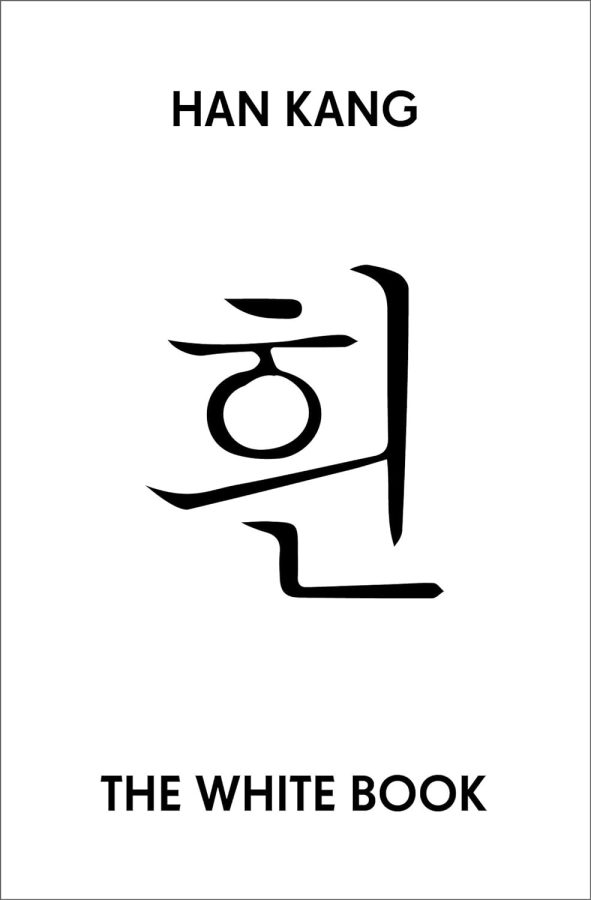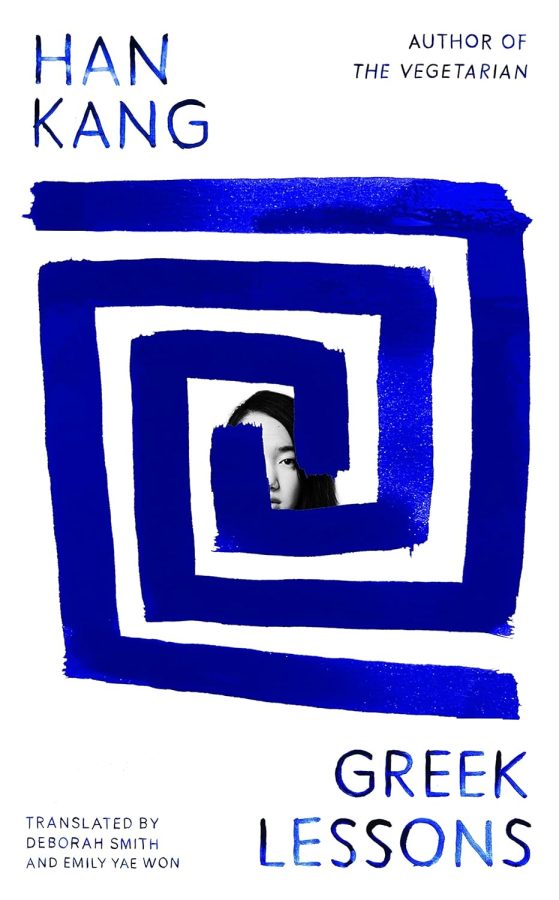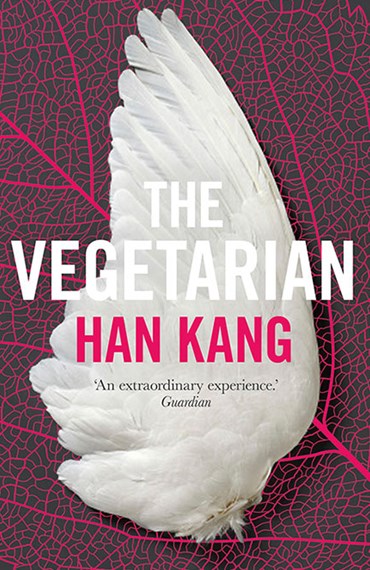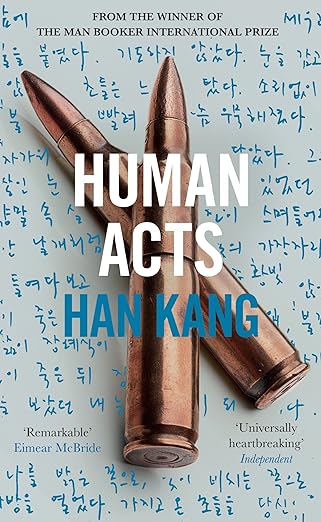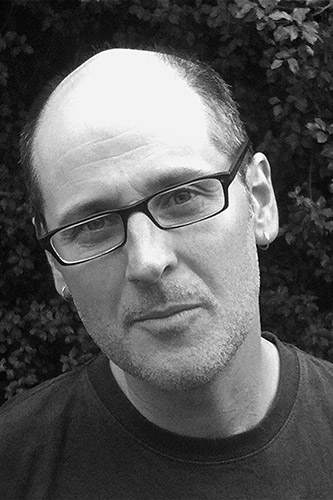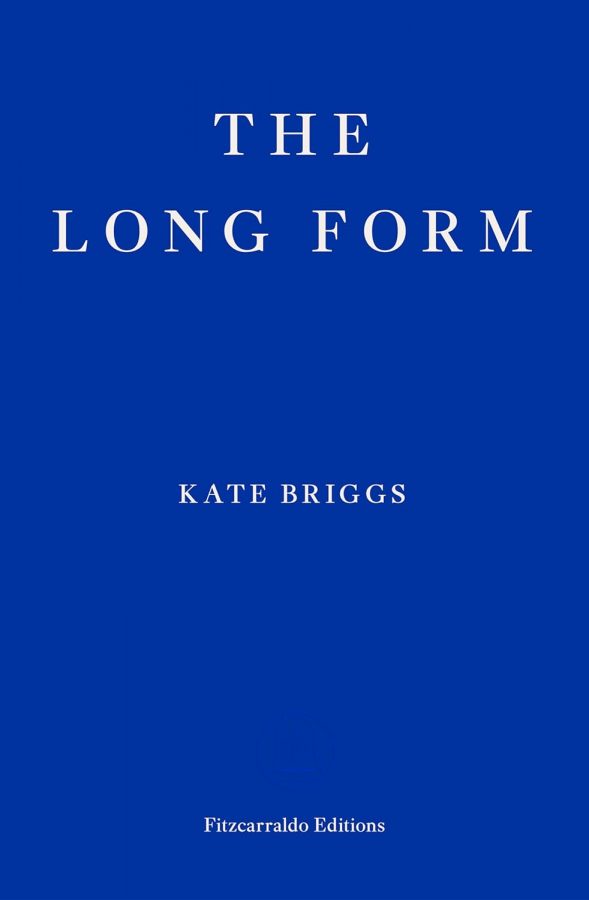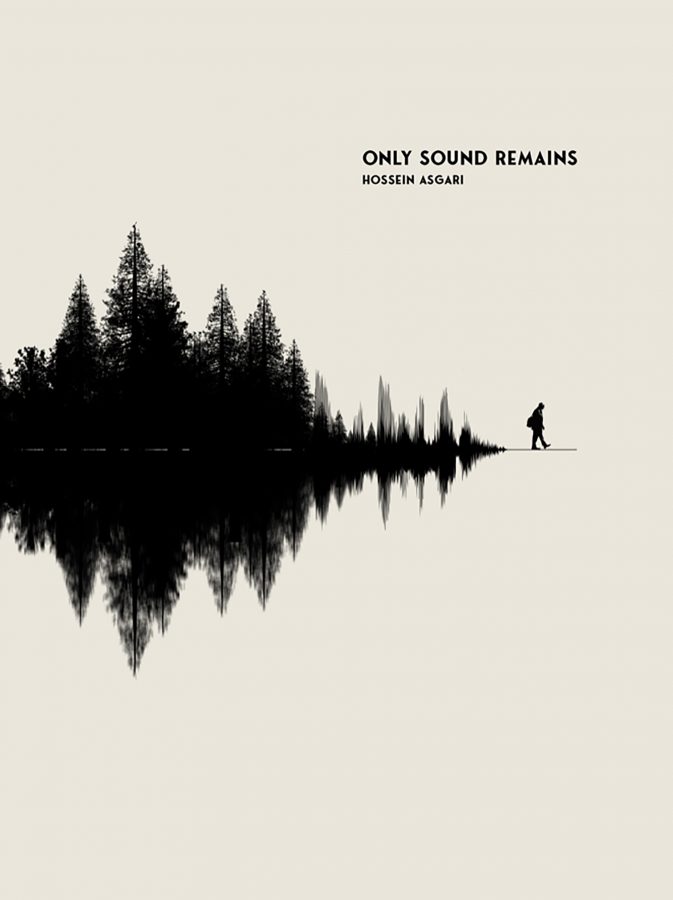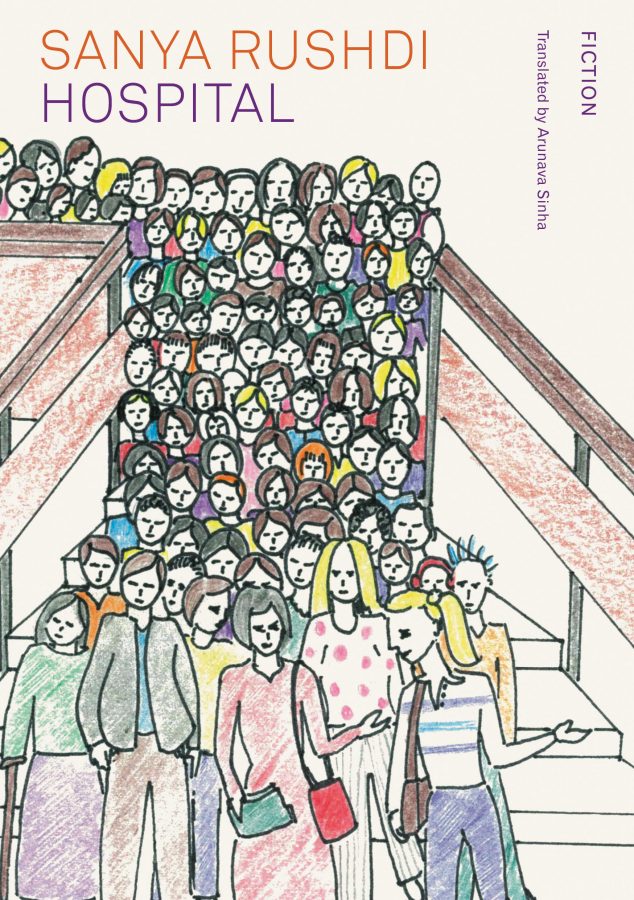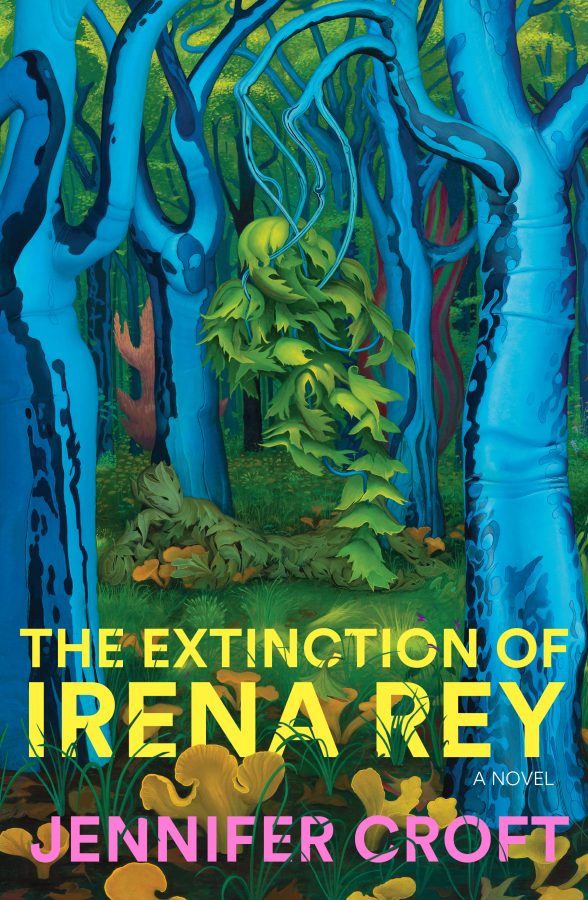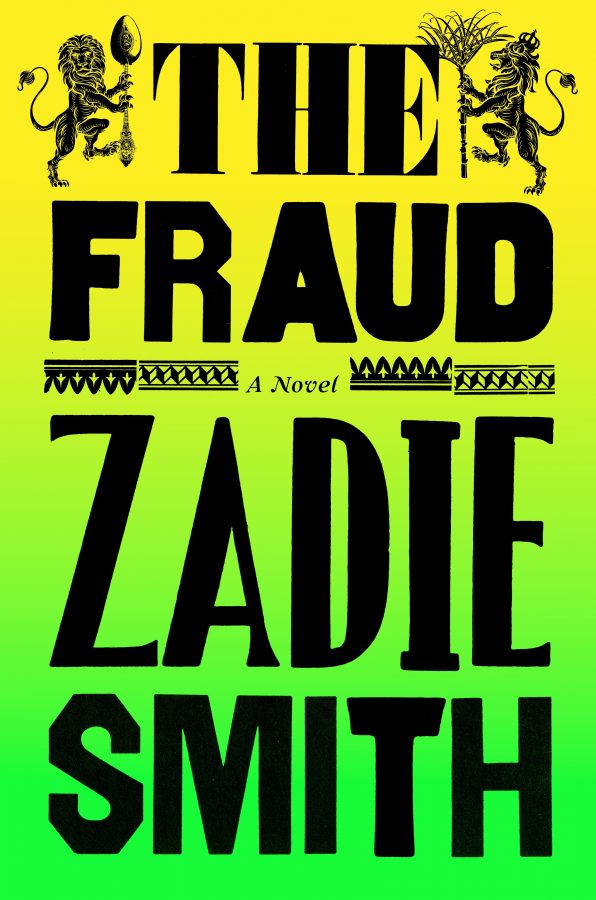In Korea, as in many east Asian countries, white is a colour of mourning. There is an element of arbitrariness to such cultural conventions, but the symbolism has its particular resonance. The contrast with the black funeral raiments of the West is significant. Black evokes the terminal darkness, the nothingness of death; it is the perfect absence of light, the denial of colour. It represents an inward-turned sorrow, its absorption and nullification of light marking out the grieving person as someone who has that within which passes show. Pure white is, like black, technically not a colour but an absence of colour. Yet it is not an absence of light. White is a saturation of light that contains the entire spectrum of colours, even as it effaces them. It reflects the light of mourning back out into the prism of the world.
In The White Book, a sequence of prose poems on the theme of grief, Han Kang writes about various things that are white: snow, rice, paper, milk, teeth, swaddling bands, the moon, a butterfly. She does so as a way of reflecting on the fate of an older sister who died within hours of being born and the anguish her mother must have felt at losing the child. The reflections prompt her to recall other deaths. We learn that her mother has also died. There are references to another dead sibling, an alcoholic uncle, a university friend killed in a road accident.
As the book unfolds, it develops a network of metaphorical associations, its own symbolic language of grief, one that is intimate but outward-facing, expressive but grounded in the ordinariness of the scenes and objects described. The author’s sorrow assumes a material, sensual form. Concepts become palpable. A smooth white pebble becomes a symbol of silence; the white fog of breath on a cold day becomes a symbol of life; the scintillation of a crashing ocean wave and a flash of fish scales become symbols of impermanence.
Near the end of the book, the author and her brother ceremonially burn a set of white mourning robes outside a Buddhist temple in honour of their dead mother. The moment of release is coloured by melancholy scepticism. ‘After white clothes dissolve into air in this way, a spirit will wear them,’ Han writes. ‘Do we really believe that?’
Much of Han Kang’s writing remains untranslated, despite the international success of her novel The Vegetarian, but enough has now appeared in English to suggest there is something characteristic about the controlled pathos of The White Book. Han has said that she was an ardent Buddhist when she was young. Her writing is preoccupied, in a broad sense, with the question of suffering, from which it derives a particular intensity of focus. ‘Physical pain sharpens the awareness,’ she writes in The White Book of the migraines that began to afflict her in her early teens. ‘I concentrate on simply enduring the pain, sensing time’s discrete drops as razor-sharp gemstones, grazing my fingertips.’
Han has observed in an interview that the existence of suffering, considered as a philosophical problem, is something of a cliché. It is a question that occurs to every moderately sensitive adolescent – the sort of existential question that maturity demands we set aside as imponderable. Yet its very naivety also indicates its fundamental nature. For Han, the existence of suffering demands a certain responsiveness to reality. The heightened awareness it generates gives her work its distinctive empathetic quality. Her writing has a sense of composure and a steadiness of authorial gaze that inclines it towards a concentrated symbolism, but it also seeks to understand pain in relational terms. The emotional and physical suffering of her characters is depicted as a function of their personal histories and social positions, and a measure of their estrangement from each other.
This understanding reaches into the historical dimension of her work. Towards the end of The White Book, Han alludes to a massacre that took place in May 1980 in Gwangju, South Korea. The violence was the culmination of a period of political turmoil following the assassination in late 1979 of the dictator Park Chung-hee. On 17 May 1980, another dictatorial general, Chun Doo-hwan, staged a successful coup, declared martial law, and dispatched soldiers to crush the burgeoning student protests at Channam National University in Gwangju. Protestors were shot and beaten to death; many others were rounded up, sent to concentration camps and tortured. The precise number of casualties is still unknown but believed to be in the thousands. The dead, writes Han, were ‘insufficiently mourned … her country had never done this properly’.
The massacre at Gwangju, the city of Han’s birth, is alluded to indistinctly (‘certain incidents in her own country’s history’), and only in passing, in a passage that draws a comparison with historical atrocities in Warsaw, where much of The White Book was composed. But the reference serves the dual purpose of enlarging the scope of the book’s intimate concerns and connecting them to its brilliant and disturbing predecessor Human Acts, a threnody for the disappeared of Gwangju. Human Acts confronts the moral outrage of the state murdering and torturing its own citizens with a profound sense of sadness and pity. It dwells not simply on the violence, but its emotional legacy and appalling physical consequences. The opening scene leads us through a gymnasium that has been converted into a makeshift morgue in the immediate aftermath of the massacre and the descriptions are almost clinical in their explicitness:
Every time you pull the cloth back for someone who has come to find a daughter or younger sister, the sheer rate of decomposition stuns you. Stab wounds slash down from her forehead to her left eye, her cheekbone to her jaw, her left breast and her armpit, gaping gashes where the raw flesh shows through. The right side of her skull has completely caved in, seemingly the work of a club, and the meat of her brain is visible.
Human Acts is marked by an unsparing carnality, in the most literal sense of the word. It returns again and again to the vulnerabilities of the flesh. Several sections are narrated from beyond the grave by a murdered fifteen-year-old boy, whose body lies in a pile of rotting corpses dumped in a field, all of them ‘tossed there like lumps of meat’, his spirit expressing its shame and disgust at having been reduced to such an ignominious state. ‘We will prove to you that you are nothing but filthy stinking bodies,’ a torturer declares later in the novel, ‘That you are no better than the carcasses of starving animals.’ The testimonies of the tortured seem to confirm this vicious proposition:
my life had been taken entirely out of my hands, and the only thing I was permitted to do now was to experience pain. Pain so intense I felt sure I was going to lose my mind, so horrific that I literally did lose control of my body, pissing and shitting myself.
This emphasis on the body as the target of political suppression exposes the reality of power, which in its rawest form is physical, but which in its institutional form relies on an unscrupulous willingness not simply to kill and maim for self-interested reasons, but to awaken and exploit the human predilection for deliberate cruelty. The twinned human capacities for inflicting and experiencing pain form the double helix of the novel. The violence takes on a significance larger than the act of political suppression; it speaks of something rotten at the heart of humanity, its underlying horror and deeper meaning residing in the calculated nature of the degradation, the intention to strip the victims of their dignity. ‘Is the dignity that we cling to nothing but self-delusion,’ one character is led to wonder, ‘masking from ourselves this single truth: that each one of us is capable of being reduced to an insect, a ravening beast, a lump of meat?’
In seeking an answer to this question, Human Acts becomes something more than a work of mourning and remembrance. The novel conceives of Gwangju as ‘another name for whatever is forcibly isolated, beaten down and brutalised, for all that has been mutilated beyond repair’. But it also becomes a gesture of restitution. When the wounds of the flesh are the physical records of political brutality, the refusal to look away becomes both a moral imperative and a mark of respect. In its willingness to face the worst of humanity, Human Acts strives to transcend the imaginative shudder at the abjection of victimhood, the visceral horror of mutilation, the instinctive disgust at putrefaction. With sorrow and compassion, it lays bare the disgrace of the perpetrators in order to reclaim the dignity of the dead.
A certain ambivalence about embodiment is evident throughout Han’s work. ‘At times my body feels like a prison,’ she writes in The White Book. Her novels are punctuated by dramatic instances of wounding and self-harm. Towards the end of Human Acts, the mother of the murdered boy, dressed in her white mourning clothes, seizes a framed portrait of Chun Doo-hwan from a police station wall, throws it down and stamps on it, cutting her foot on the broken glass and spraying herself with blood. At the culmination of the first section of The Vegetarian, a woman stands before her family and slices open her wrist with a knife, hacking at her body, as her horrified brother-in-law later recalls, ‘like it was a piece of meat’. One of the protagonists of the newly translated Greek Lessons has a facial scar, the legacy of a failed love affair, that ‘runs in a slender pale curve from the edge of his left eyelid to the edge of his mouth’. The novel’s other main protagonist thinks of it as ‘marking where tears had once flowed’ and imagines scarring her face with a needle to map her own tears.
There is an obvious symbolic quality to these injuries. They are physical manifestations of psychological distress: inscriptions of trauma, in the etymologically precise sense of the word (from the Greek τραυμα, meaning a wound). They encapsulate the tension in Han’s writing between her acute sensual awareness and the various disconnections, miscommunications and losses that structure her novels. The Vegetarian offers perhaps the clearest illustration, if only because its form is relatively straightforward. The descent into madness of the eponymous vegetarian, a woman named Yeong-hye, is presented as a triptych. The first section is narrated by her chauvinistic mediocrity of a husband; the second assumes the point of view of her besotted brother-in-law; the third that of her envious older sister. The fact that we only see Yeong-hye through the eyes of others reinforces the sense of her objectification and subjection. Her odd behaviour, beginning with her decision to stop eating meat, appears to her family to be strange to the point of inexplicability, though the structural irony makes it clear enough that her actions are a form of passive resistance and, on a deeper level, symptoms of a psychological recoil from the conditions of her existence.
The implications become more complicated and, in certain respects, more opaque as the novel proceeds. Yeong-hye’s intransigence initially seems to have a clear motivation in the abuse she experiences at the hands of her husband and father. She is resisting her socially mandated role as a submissive wife and daughter. More unsettling is the manner in which she internalises the patriarchal violence, turns against herself, disowns her body and ultimately her humanity. She maintains that her vegetarianism has been prompted by disturbing dreams, full of horror and loathing. Following her theatrical suicide attempt in front of her family, she lapses into a state of dreamy dissociation. When her brother-in-law convinces her to participate in his visual art project, in which he treats her naked body as a canvas, decorating it with colourful floral images, her acquiescence to his erotic fascination with her seems to involve a disconcerting renunciation of her will. ‘This was the body of a beautiful young woman,’ he thinks as he gazes at her, ‘conventionally an object of desire, and yet it was a body from which all desire had been eliminated … what she had renounced was the very life that her body represented.’ He notices that her voice has ‘no weight to it, like feathers’. Yeong-hye speaks in ‘the quiet tone of a person who didn’t belong anywhere, someone who had passed into a border area between states of being’. Her facial expression appears
as serene as that of a Buddhist monk. Such uncanny serenity actually frightened him, making him think that perhaps this was a surface impression left behind after any amount of unspeakable viciousness had been digested, or else settled down inside her as a kind of sediment.
In the final section of The Vegetarian, after she has been confined to a psychiatric institution, Yeong-hye receives a clinical diagnosis: schizophrenia combined with anorexia. By this stage of the novel, the diagnosis seems not so much superficial as thoroughly inadequate. Her madness has come to seem more figurative than pathological. The neatness of the classification appears as simply one more projection onto a character who has spent the entire novel serving as a screen for the expectations and desires of others.
When Yeong-hye stands on her head and declares that she wants to become a tree and have flowers bloom from her crotch, she reclaims for herself the generative floral imagery of her brother-in-law’s objectifying, sexually exploitative and unilluminating art work. In a sense, her expressive gesture succeeds where his fails. As her sister In-hye realises, Yeong-hye’s madness is an escape into ‘magnificent irresponsibility’. She has broken free of social constraints, exposed their oppressive nature, at the cost of her freedom and sanity. With some bitterness, In-hye is led by her sister’s example to the belated realisation that ‘her life had never belonged to her’. She remains a ‘prisoner’, trapped in a social cage whose bars she had previously been unable even to see.
Implicit in the evocative strangeness of Yeong-hye’s behaviour is the idea that she cannot express herself by other means. There is something incommunicable about her wounded state of being that creates an unbridgeable gulf between her and everyone around her. Han is always alert to such distances, concerned to examine the spaces between her characters, and much of the formal intricacy of her work can be viewed as an attempt to write across those spaces. Human Acts and Greek Lessons both make effective use of apostrophe: a rhetorical mode in which the speaker addresses an absent person. Han’s writing can be considered ‘literary’ in the precise sense that it is conscious of the inherent limitations of language and so constantly strives to transcend its own medium. ‘Language is like an arrow that always misses its target by a narrow margin,’ she observed in a recent interview, ‘and it is also something that delivers emotions and sensations that are capable of inflicting pain.’
There has been some mild controversy about the accuracy of Deborah Smith’s translations, but they convey quite clearly that Han makes a consistent attempt, on the levels of imagery and metaphor, to render the world in embodied and often highly sensual terms. This is not simply because our senses make the world real to us, but because the material fact of embodiment is a truth that precedes the formal impositions of culture, language and reason. Language itself is described in physical and often carnal terms. The artistic and philosophical problems of expression are focalised through the body in an attempt to convey experiences and ideas as palpable truths, to efface the distinction between word and flesh.
Greek Lessons, which has been translated by Smith and Emily Yae Won, is notable for the explicitness with which it addresses this theme. It is not a new work. It was first published in Korean in 2011, which places it after The Vegetarian but before Human Acts. More than either of those novels, it favours an exploratory, fragmented, poetic style of reflection. It is succinct and sparsely plotted, but encodes the idea of thwarted communication into its conception, assuming an almost masque-like formality in its delicately poised closing chapters.
The novel moves between the perspectives of two unnamed characters: a man and a woman. He is a philosopher who has returned to Seoul, having lived for many years in Germany, and now teaches Ancient Greek at an undistinguished academy. Early in the novel, we learn he has a degenerative eye condition that is sending him blind. She is a poet, editor and teacher, who has recently separated from her husband and lost custody of her son due to her history of mental illness. She is also in mourning for her mother – she favours nullifying black clothes, rather than the traditional Buddhist white – and has recently suffered another breakdown that has left her mute.
Like Yeong-hye’s madness in The Vegetarian, the woman’s inability to speak is a manifestation of her personal anguish, but has broader implications. When her therapist offers seemingly plausible explanations for her condition, she is at first adamant that he is simply wrong, then affronted by the tidy assumption of causality. ‘What she found most intolerable,’ Han writes, ‘was his claim that he understood her.’ Her muteness is shown to be intimately related to her heightened aesthetic response to language. She recalls learning to read and write as a child and being fascinated with the sensual qualities of words: the evocative nature of their sounds, the pictographic charm of their written characters. Her first mental breakdown as a teenager, when she was struck dumb for the first time, was the culmination of her increasingly disconcerting sense of their physicality. Words began to ‘thrust their way into her sleep like skewers’. The violence of their dissections, their brutal definitiveness, drew a visceral response:
The most agonizing thing was how horrifyingly distinct the words sounded when she opened her mouth and pushed them out one by one. Even the most nondescript phrase outlined completeness and incompleteness, truth and lies, beauty and ugliness, with the cold clarity of ice. Spun out white as spider’s silk from her tongue and by her hand, those sentences were shameful. She wanted to vomit. She wanted to scream.
The mute woman’s recoil into silence as a teenager is presented as a regression into a pre-verbal state – a state in which she ‘no longer thought in language and understood without language’. Her subsequent breakdown is experienced as a similarly unmediated state, but its implications are darker. The first silence was like ‘that which exists before birth’; the second is ‘more like that which follows death’. The woman’s decision to study Ancient Greek as an adult is motivated by a desire to ‘reclaim language’, the spell of her earlier silence having been broken in a high school French class by the exotic word bibliothèque. She chooses Greek more or less arbitrarily. Its attraction is simply that it is foreign, linguistically unrelated to her native Korean, its complicated rules of grammar holding out the hope that she might acquire new means of conceptualisation and poetic expression. Her philosopher teacher initially promises as much. He commends Plato’s Greek as the acme of human expression, a language that unites beauty and truth. But this time the spell is not broken. The woman finds the language to be ‘as cold and hard as a pillar or ice … a supremely self-sufficient language. A language that can part the lips only after irrevocably determining causality and manner.’
This conflict between the conceptual and the actual, the sensual and coldly logical, is drawn out in the ruminations of the two main characters, whose interactions are minor until the final scene. Much of the thematic complexity of Greek Lessons is a function of the contrasts and parallels that arise from the juxtaposition of their symbolic impairments and personal histories. The mute woman’s grief at the loss of her mother and her separation from her son is mirrored in the teacher’s sorrows and regrets. In his sections of the novel, written in the first-person, he addresses a deaf woman he fell hopelessly and unrequitedly in love with when he first arrived in Germany, and then alienated with his callow foolishness. He composes missives to his sister back in Germany, in which he reflects on their childhood and his sense of being caught between two cultures. And he apostrophises to an old friend – a fellow philosopher and mentor, who died at the age of thirty-eight – recalling with rueful affection their formative intellectual discussions as earnest young men.
The philosophical dimension of the novel is also made explicit in the classroom scenes, in which the teacher introduces his students to Plato’s theory of Forms. The world is ‘ephemeral and beautiful’, he tells them, but Plato wanted a world that was ‘eternal and beautiful’, so he reasoned his way to the view that people who admired beautiful objects in reality did not appreciate true beauty. Such people existed in a ‘state of dreaming’, according to Plato, while he was ‘awake and not dreaming’, because he ‘trusted only in an absolute beauty that cannot exist in reality’.
Greek Lessons is a repudiation of such metaphysics: an eloquent poetic response to the idealisations of philosophy. It inverts Plato’s ‘upside down’ perspective, redirects our attention away from the immaterial purity of the ideal and towards the tragic imperfections of the real. Its structuring irony is that its characters – embodiments of the ancient quarrel between philosophy and poetry – become alienated from the essences of their respective arts: she recoils from language; he comes to distrust reason. In both cases, the issue is not the distance from an ideal form, but an inability to convey the inchoate truths of their sensual and emotional existences. Before she was struck mute, the woman ‘sometimes wished that her own expression would more closely resemble inarticulacy: a moan or low cry’. The man recognises ‘something tenuous and unsatisfactory in the way logical demonstration works, sifting all humankind’s sufferings and regrets, attachments, sadness and weakness through the loose net of truth and falsity to obtain a handful of premises like a handful of gold dust’.
The teacher recalls his friend chiding him that his way of philosophising was ‘too literary’. He resists this sly dig at his philosophical bona fides, just as the woman resists her therapist’s insight that she is ‘aware that the circuit connecting language to the world is something that only just holds together, something in constant danger of failing’. He claims to have ‘no desire to put my trust in a world of wobbly, laxly interlaced sensory perceptions and images, emotions and thoughts’. But it is precisely that uncertain world – the world we all live in, the world that literature seeks to capture – that he is returned to in his blindness. That he is being deprived of his sight underscores the irony of his disillusionment. In his famous allegory of the cave, Plato uses the conventional metaphors of light for knowledge and seeing for comprehension, promoting sight above the other senses as the means of accessing true wisdom. As his mentor explains, light is Plato’s precondition of understanding: without light there can be no Forms. If there are no such ideal Forms, then the only option is to reconcile oneself to both the transience and the materiality of existence, recognise that ‘there is no complete thing, ever. At least in this world.’
Greek Lessons is, in this sense, a novel of disillusionment. The teacher’s estrangement from philosophy extends beyond Platonic idealism to his old belief in Buddhism. He recalls that among the Buddhist texts he took with him when he emigrated to Germany was a lecture by Jorge Luis Borges, whose blindness he initially interprets as a barrier ‘between the ageing Borges and the world’. Buddhism, according to Borges, ‘does not admit the reality of the body or of the soul’. It teaches that ‘everything is unreal … the world is an apparition, a dream … the I does not exist … what exists is a series of mental states’. The teacher comes to realise that he was drawn to Plato’s ‘back-to-front world’ for the same reason he had been ‘spellbound by Buddhism, which did away with the real world in one fell swoop’.
But with disillusionment comes reconnection. ‘The world is an illusion, and living is dreaming,’ the teacher states, paraphrasing Borges. He adds his own qualification: ‘Yet blood runs and tears gush forth.’ Greek Lessons responds to this painful truth with its poetry of the flesh. It strives to overcome the woman’s sense that language has been ‘worn ragged over thousands of years, from wear and tear by countless tongues and pens … worn ragged over the course of her life, by her own tongue and pen’. The novel’s culminating image of the mute woman tracing words onto the palm of the blind man with her finger makes the act of communication a tactile reality. It grounds the novel, without diminishing its central mystery. ‘What a strange thing one’s flesh and blood is,’ the teacher observes. ‘How strange are the ways it brings us sorrow.’
Works Cited
- Clare Armistead, ‘Han Kang: Writing about a massacre was a struggle’, The Guardian (6 February 2016).
- Jorge Luis Borges, ‘Buddhism’, Seven Nights, translated by Eliot Weinberger (New Directions, 1984) 58-75.
- Han Kang, The Vegetarian, translated by Deborah Smith (Portobello Books, 2015).
- —, The White Book, translated by Deborah Smith (Portobello Books, 2017).
- —, Human Acts, translated by Deborah Smith (Granta, 2020).
- —, Greek Lessons, translated by Deborah Smith and Emily Yae Wong (Hamish Hamilton, 2023).
- —, ‘The Horror of Humanity’ (interview)
- Tim Parks, ‘Raw and Cooked’, The New York Review of Books (20 June 2016).
- Plato, The Republic, translated by Desmond Lee (Penguin, 2007).
- Dennis Zhou, ‘Han Kang on How Language Misses Its Mark’, The New Yorker (30 January 2023)
